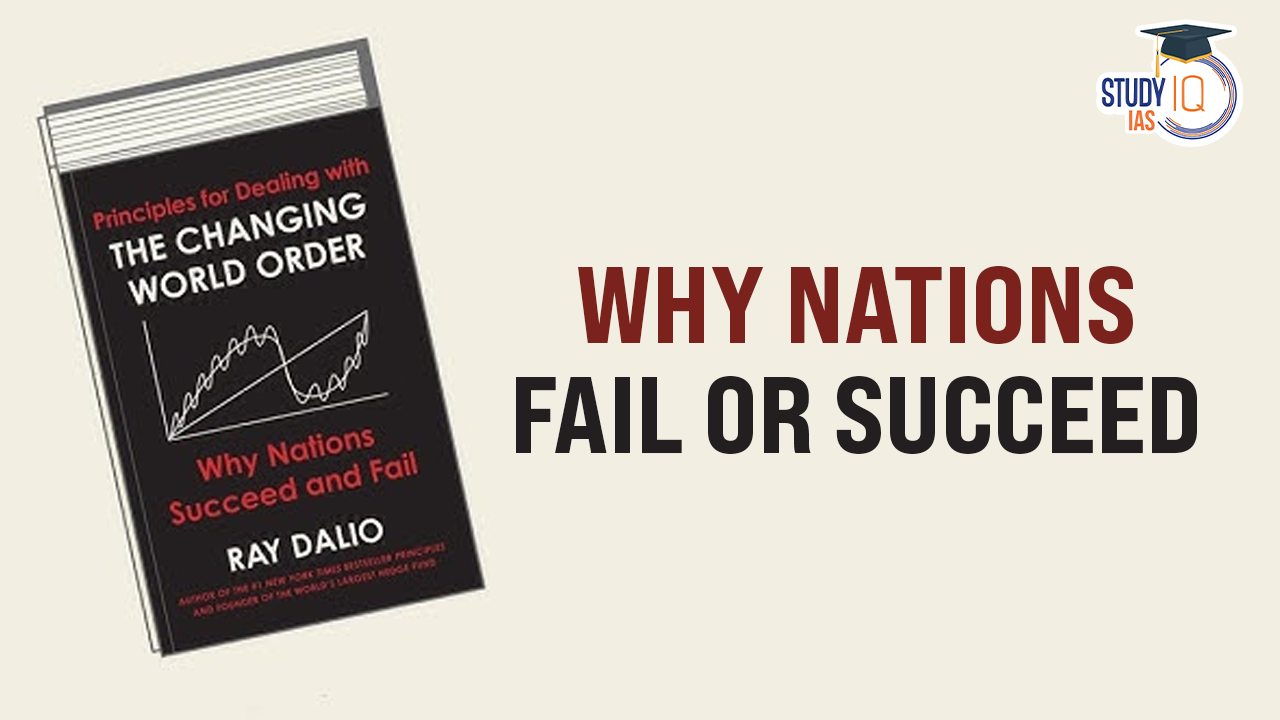Table of Contents
Context
- The Royal Swedish Academy of Sciences awarded the Sveriges Riksbank Prize in Economic Sciences in Memory of Alfred Nobel for 2024 to Daron Acemoglu, Simon Johnson, and James A Robinson, three economists based in the United States.
- Their work focuses on the role of institutions in determining prosperity.
- Their research provides insights into why some nations are rich while others are poor, helping to explain the persistent income gap between nations.
Core Questions Addressed
The laureates’ work seeks to answer fundamental questions regarding global economic disparities:
- Why are some nations rich while others remain poor?
- What factors contribute to the success or failure of nations in achieving prosperity?
The Academy highlighted that the richest 20% of countries are approximately 30 times richer than the poorest 20%, and despite some progress, poorer nations are not catching up with wealthier ones.
The Answer: Institutions and Prosperity
- The 2024 Nobel laureates have demonstrated that the differences in prosperity between nations can be largely attributed to the nature of their institutions.
- Institutions refer to the broad set of rules that govern how individuals behave within a society or nation. The research divides these institutions into two main categories:
- Inclusive Institutions:
- Promote democracy, rule of law, and protection of property rights.
- Ensure that people have the freedom to innovate, invest, and pursue economic growth.
- Encourage long-term planning and wealth generation.
- Extractive Institutions:
- Characterised by a lack of rule of law, autocratic or dictatorial governance, and concentration of power in the hands of a few.
- Lead to exploitation of the population for the benefit of elites.
- Undermine the incentives needed for long-term growth and prosperity.
- Example: Countries where people are assured that their property and wealth are protected tend to focus on boosting long-term growth. In contrast, in nations with extractive institutions, the lack of incentives for security and prosperity leads to economic stagnation.
- Inclusive Institutions:
Evidence from Colonial History
- The laureates’ research looked into the effects of European colonisation and found that the political and economic systems introduced by colonisers had a significant impact on the current differences in prosperity.
- Their 2001 paper, The Colonial Origins of Comparative Development: An Empirical Investigation, published in The American Economic Review, explores how colonisers shaped institutions based on their mortality rates in the colonised regions.
- In some colonies, colonisers built extractive institutions aimed at exploiting local populations and extracting resources.
- In others, they developed inclusive institutions for long-term benefits, primarily for European settlers.
The Role of Institutions in Colonial Choices
The laureates’ research suggests that colonisers’ choice of institutional frameworks was linked to their mortality rates:
- In regions where mortality rates were high (due to factors such as diseases like malaria), colonisers chose to implement extractive institutions.
- In regions where mortality rates were low, they were more likely to establish inclusive institutions that promoted long-term development.
Contemporary Implications
In modern India
- The country operates under a democratic framework with regular elections and an independent judiciary.
- However, debates continue regarding its economic performance compared to China, which has achieved rapid growth without inclusive institutions.
- Arvind Subramanian, former Chief Economic Advisor to India, noted that while China has prospered under authoritarianism, India’s growth potential remains unfulfilled despite its democratic institutions. This suggests that institutional quality is essential but not the only factor influencing economic outcomes.
| Related Articles |
| Nobel Prize in Medicine 2024 |
| Nobel Prize in Physics 2024 |
| Nobel Prize in Chemistry 2024 |
| Nobel Peace Prize 2024 |


 Somaliland Explained: Location, History,...
Somaliland Explained: Location, History,...
 Signals from the Indian Economy: What Ke...
Signals from the Indian Economy: What Ke...
 Reforms Needed in India’s Political Fu...
Reforms Needed in India’s Political Fu...

























